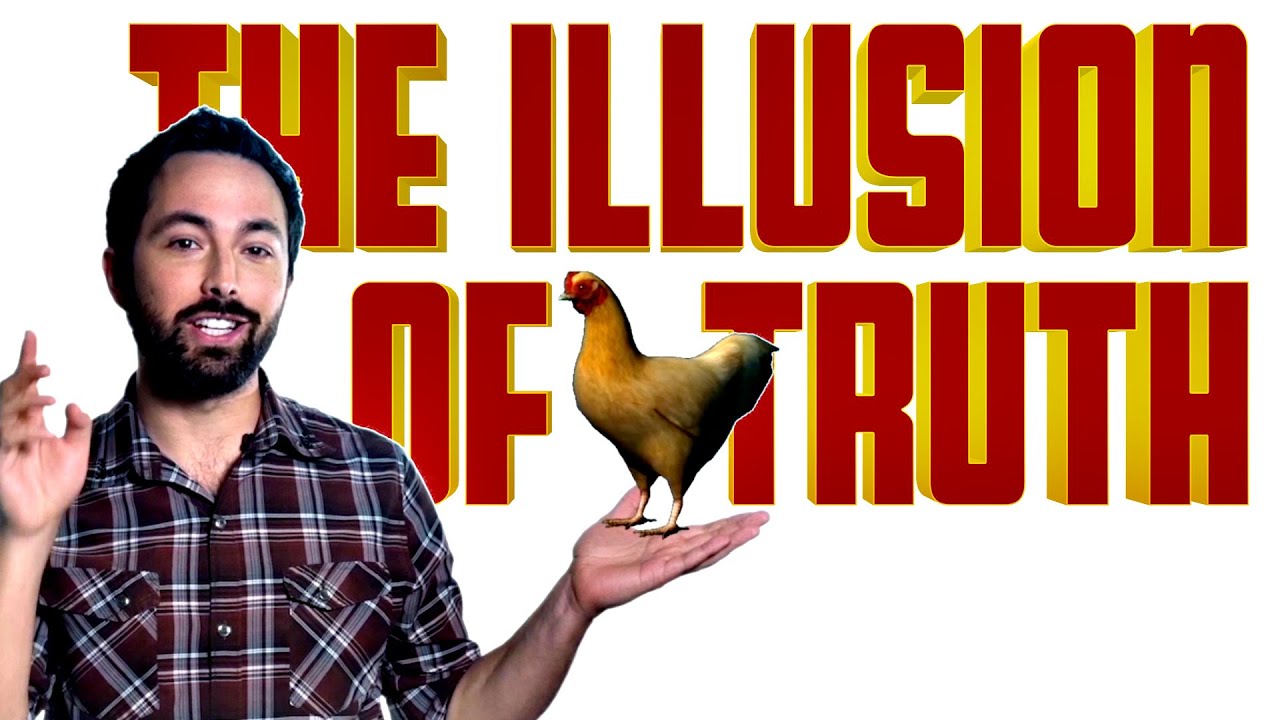The Illusion Of Truth
Unleash Your Creative Genius with MuseMind: Your AI-Powered Content Creation Copilot. Try now! 🚀
Research has shown that repetition can have a powerful impact on our perception of truth. In one study, participants were repeatedly exposed to the phrase "The body temperature of a chicken" without any additional information. As a result, they were more likely to judge the statement "the body temperature of a chicken is 34 degrees Celsius" as true, even though it was actually closer to 41 degrees. This phenomenon highlights the influence of cognitive ease, a measure of how hard the brain is working. The more familiar and repeated a statement is, the more likely it is to elicit cognitive ease, making it feel true and effortless.
The Advertising Industry and Cognitive Ease
The power of repetition and cognitive ease extends beyond individual perceptions. In fact, the advertising industry capitalizes on this phenomenon by repeating stimuli to make them more appealing. Whether it's a meaningless word, a catchy jingle, or the faces of celebrities like the Kardashians, repetition creates familiarity and comfort, triggering cognitive ease and positive feelings. This is why repeated exposure to products, brands, and even stock market abbreviations can influence our perceptions and preferences.
The Role of Cognitive Ease in Decision Making
Cognitive ease not only affects our perceptions but also influences our decision-making processes. For example, easily pronounceable last names are over-represented in law firms, and companies with pronounceable stock market tags out-perform those with unpronounceable ones. Additionally, cognitive ease can make us more intuitive, allowing us to make quick associations and judgments based on familiarity and comfort. However, it's important to recognize that cognitive ease can also make us more gullible, leading to intuitive but incorrect answers.
Balancing Cognitive Ease and Critical Thinking
While cognitive ease has its benefits, it's essential to balance it with critical thinking, especially in areas like physics and scientific reasoning. Being skeptical and analytical may require more mental effort and can feel less pleasant, but it's crucial for separating fact from fiction. Recognizing when to rely on cognitive ease and when to engage in critical thinking is key to making informed decisions and avoiding the pitfalls of intuitive but incorrect assumptions.
In conclusion, cognitive ease is a powerful force that shapes our perceptions, decision-making processes, and intuitive judgments. While it can make us more creative and intuitive, it's essential to be vigilant and distinguish between genuinely true information and repeated stimuli. By understanding the influence of cognitive ease, we can navigate a world where repeated exposure can make anything seem true and learn to think critically when it matters most.

Related Recaps
- Icing Images Retailer of the Year Finalist - Please Vote 3 Times
- Brad Little details plans to send troopers to Texas border
- How to Build a Team for World University Games from the Ground Up?
- Someone left a full-sized snowcat sitting in a Silverthorne parking lot
- Plant Mom Diary🪴| Series 1| Episode 6:Transplanting Sunflowers to Flower Beds | Beginning Gardener